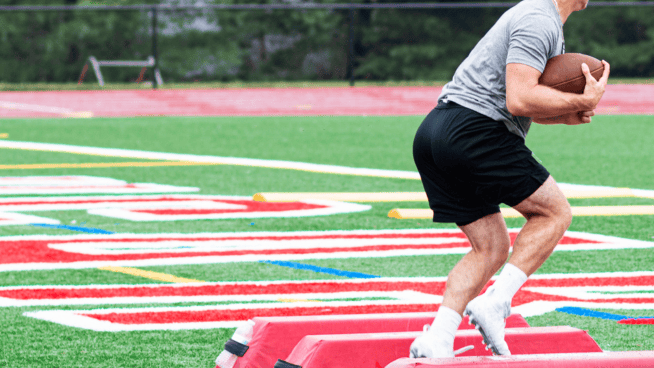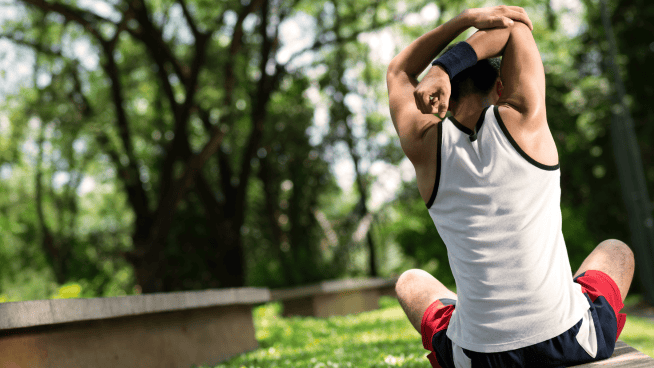How Sports Help Kids Develop Life Skills
Children need more influence in their lives besides what they get from their phones. The internet can obscure a child’s reality and identity. They can create poor social skills, inability to communicate, bad behavior, low self-esteem, aggressiveness, cognitive issues, trouble concentrating, depression, etc.
Kids can become more obsessed with other people’s lives, tweets, and likes rather than their own or learning to score a game-winning goal. The influence is too easy. However, sports and physical activity can make a cloudy day turn sunny.
Sport and physical activity positively impact the social, emotional, and academic performance of kids.
- Calm an overactive mind to be more focused.
- Relax aggressive behavior to understand that there is another side.
- Help kids gain self-esteem.
- Releasing endorphins in the body, the body’s feel-good chemicals.
- Improve concentration
How Sport And Physical Activity Alter Your Brain
Sport and physical activity alter your brain positively and progressively. The front of your brain is the part of your brain that controls your emotions, ability to socialize, and cognitive skills. Sports and physical activity increase blood flow and oxygen to the brain and cause endorphins and hormones to be released that create a better mood, well-being, and positive feelings. Sport and physical activity also create new nerve cells in the brain that bridge and influence other parts of the brain’s connections. Playing sports and physical activity helps your brain to function better. When all of this comes into play, it produces a more rational, logical, and empathetic mind that leads to other great qualities. When you develop one, you begin to unlock the others.
Sports Develop Life Skills
Life skills are important because they are the foundation that causes other skills to blossom and flourish and how a child will integrate with the world. Playing sports creates self-awareness, and self-awareness leads to good decision-making, problem-solving, and the ability to communicate effectively. The ability to communicate through self-awareness creates empathy and understanding and builds positive relationships and friendships. Sports also instills assertiveness, positivity, and self-confidence; to do and accomplish and not be afraid to do it.
Sports Develop Academic Skills
Academia is important to develop a child’s mind. It will depend on life skills because the child must integrate and interface with the school. Sports help children be assertive, aware, and curious and, develop initiative. These skills influence critical thinking and imagination. In sports, you are often given a specific position to play. Learning to play that specific position teaches children accountability, follow instructions and organizational skills. These skills transfer into good study habits and better concentration.
Sport Develop Social And Emotional Skills
Social and emotional skills are important. They help children to stay calm and have the self-control to think rather than react. Self-control leads to expressing feelings, listening to others, and being aware of other people’s feelings. Sports give children a chance to develop a positive self-image, feel proud, and show affection.
Sports Develop Career Skills
Playing sports throughout life ingrains life, social and emotional skills. As children become older and enter the workforce, they will understand teamwork and work as a team. Working as a team will further develop their commitment, responsibility, and people skills in a more advanced way. However, having the foundation to function as a team is essential. When the going gets tough, the tough get going will access their perseverance, determination, and ability to handle the pressure. All of the aforementioned prepares them to be the “cream of the crop” and the ability to obtain leadership and management positions.
Life Is Just Like A Sport
Researchers today now know that sport, physical activity, even recess are just as essential as learning a subject like math in school because of their positive development and unparalleled effects. There are schools in Finland that teach through constant recess. Their results show better behaviors, improved academic retention, and the willingness to want to learn. The kids also learned respect, responsibility, compassion to help each other and had better self-esteem.
Sport and physical activity are not just useful to improve and transform the body. It is excellent at developing the brain too! Believe it or not, when kids, even adults, play sports, do physical activity or move and play, it is developing their mind-body connection. It wires their brain to become more aware and mindful. And, it can rewire a brain to do the same too! Sport and physical activity have an incredibly positive effect, and kids need to be given this opportunity to develop. Furthermore, when children start at a young age, they are more likely to continue staying healthy and more active as they become older.
Social media, video games, and TV do serve as building blocks for development. It is not about taking it all away from children. It is about guiding, educating, and showing them the positives without abusing them. In this day and age, children must learn and know the difference between life and the internet and that it is not a replacement for physical contact and communication.
Read More
RECOMMENDED FOR YOU
MOST POPULAR
How Sports Help Kids Develop Life Skills
Children need more influence in their lives besides what they get from their phones. The internet can obscure a child’s reality and identity. They can create poor social skills, inability to communicate, bad behavior, low self-esteem, aggressiveness, cognitive issues, trouble concentrating, depression, etc.
Kids can become more obsessed with other people’s lives, tweets, and likes rather than their own or learning to score a game-winning goal. The influence is too easy. However, sports and physical activity can make a cloudy day turn sunny.
Sport and physical activity positively impact the social, emotional, and academic performance of kids.
- Calm an overactive mind to be more focused.
- Relax aggressive behavior to understand that there is another side.
- Help kids gain self-esteem.
- Releasing endorphins in the body, the body’s feel-good chemicals.
- Improve concentration
How Sport And Physical Activity Alter Your Brain
Sport and physical activity alter your brain positively and progressively. The front of your brain is the part of your brain that controls your emotions, ability to socialize, and cognitive skills. Sports and physical activity increase blood flow and oxygen to the brain and cause endorphins and hormones to be released that create a better mood, well-being, and positive feelings. Sport and physical activity also create new nerve cells in the brain that bridge and influence other parts of the brain’s connections. Playing sports and physical activity helps your brain to function better. When all of this comes into play, it produces a more rational, logical, and empathetic mind that leads to other great qualities. When you develop one, you begin to unlock the others.
Sports Develop Life Skills
Life skills are important because they are the foundation that causes other skills to blossom and flourish and how a child will integrate with the world. Playing sports creates self-awareness, and self-awareness leads to good decision-making, problem-solving, and the ability to communicate effectively. The ability to communicate through self-awareness creates empathy and understanding and builds positive relationships and friendships. Sports also instills assertiveness, positivity, and self-confidence; to do and accomplish and not be afraid to do it.
Sports Develop Academic Skills
Academia is important to develop a child’s mind. It will depend on life skills because the child must integrate and interface with the school. Sports help children be assertive, aware, and curious and, develop initiative. These skills influence critical thinking and imagination. In sports, you are often given a specific position to play. Learning to play that specific position teaches children accountability, follow instructions and organizational skills. These skills transfer into good study habits and better concentration.
Sport Develop Social And Emotional Skills
Social and emotional skills are important. They help children to stay calm and have the self-control to think rather than react. Self-control leads to expressing feelings, listening to others, and being aware of other people’s feelings. Sports give children a chance to develop a positive self-image, feel proud, and show affection.
Sports Develop Career Skills
Playing sports throughout life ingrains life, social and emotional skills. As children become older and enter the workforce, they will understand teamwork and work as a team. Working as a team will further develop their commitment, responsibility, and people skills in a more advanced way. However, having the foundation to function as a team is essential. When the going gets tough, the tough get going will access their perseverance, determination, and ability to handle the pressure. All of the aforementioned prepares them to be the “cream of the crop” and the ability to obtain leadership and management positions.
Life Is Just Like A Sport
Researchers today now know that sport, physical activity, even recess are just as essential as learning a subject like math in school because of their positive development and unparalleled effects. There are schools in Finland that teach through constant recess. Their results show better behaviors, improved academic retention, and the willingness to want to learn. The kids also learned respect, responsibility, compassion to help each other and had better self-esteem.
Sport and physical activity are not just useful to improve and transform the body. It is excellent at developing the brain too! Believe it or not, when kids, even adults, play sports, do physical activity or move and play, it is developing their mind-body connection. It wires their brain to become more aware and mindful. And, it can rewire a brain to do the same too! Sport and physical activity have an incredibly positive effect, and kids need to be given this opportunity to develop. Furthermore, when children start at a young age, they are more likely to continue staying healthy and more active as they become older.
Social media, video games, and TV do serve as building blocks for development. It is not about taking it all away from children. It is about guiding, educating, and showing them the positives without abusing them. In this day and age, children must learn and know the difference between life and the internet and that it is not a replacement for physical contact and communication.
Read More










